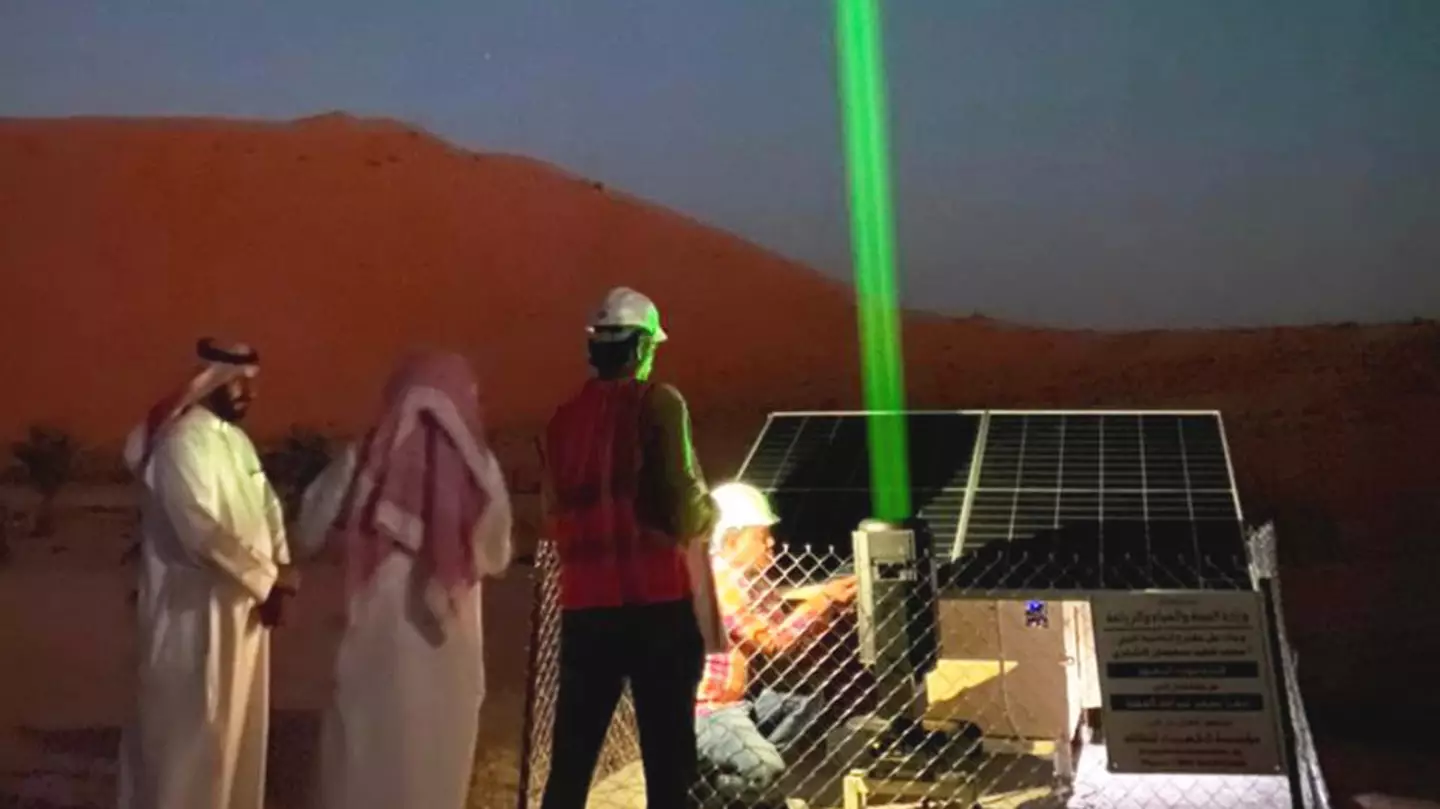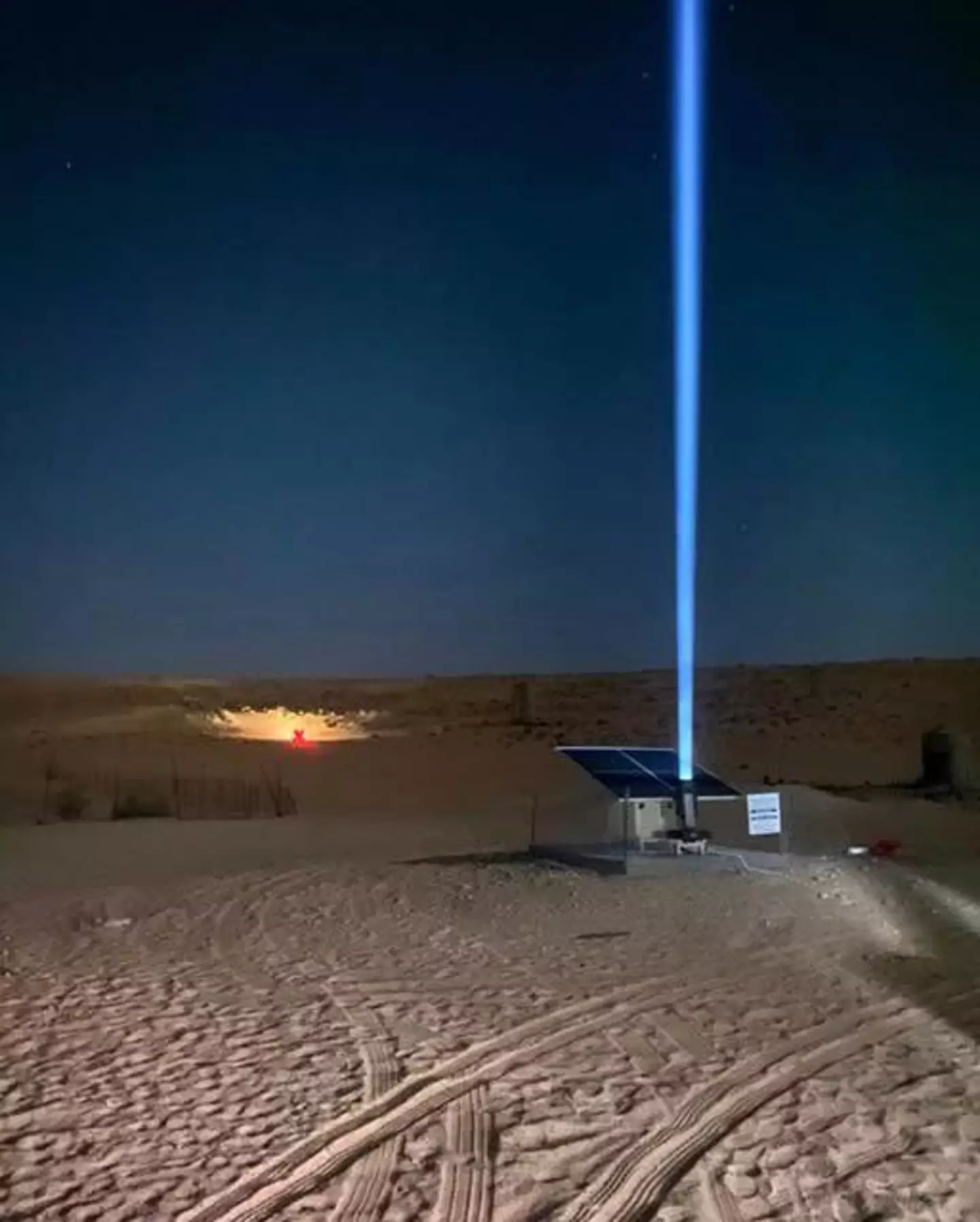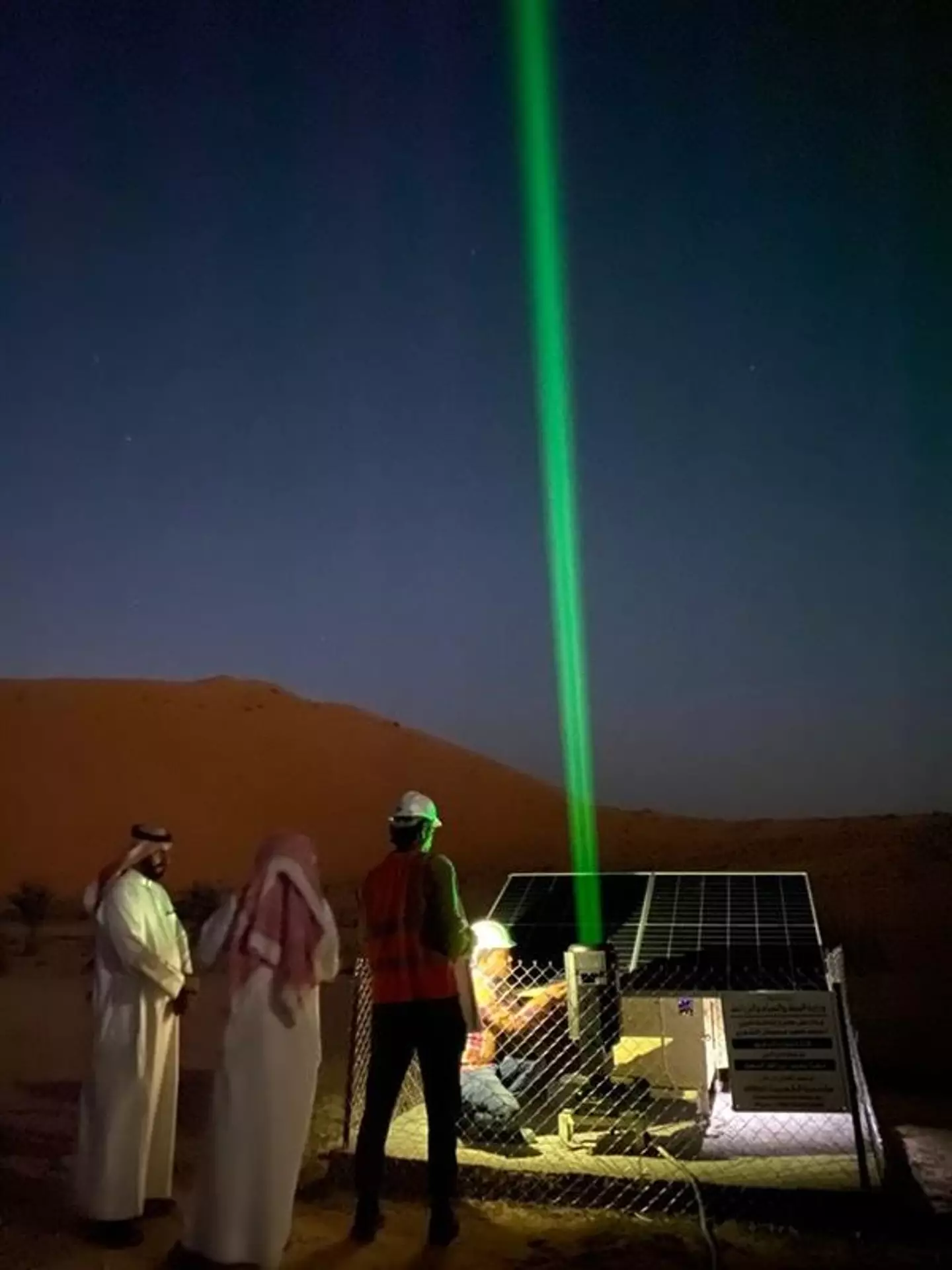
If you mentioned lasers in the desert, the first thing that would come to my mind is Tatooine from Star Wars.
But, a little closer to home in Saudi Arabia, they've found an ingenious and surprisingly useful way to use lasers in the desert.
Out in the vast, dry deserts of the country, solar-powered laser beacons are being installed to guide lost travellers to water sources. Yes, lasers are literally pointing the way to survival, much like a beacon in Minecraft.
The project came from Mohammad Fohaid Al-Sohaiman Al-Rammali, an explorer and environmental activist.
Advert
After taking part in several desert rescue missions, he noticed that tragically, many people that had lost their lives in the desert were actually closer to water than they realised. They just didn't know it.
"Many people lost their lives in the desert near water resources because they did not know that water resources were close to them," he told Arab News. That heartbreaking reality inspired him to find a tech solution to help those lost in the vast deserts.
How the laser beacons work
While Saudi Arabia is better known for mega-projects like controversial £400 billion megacity The Line, the desert lasers are relatively simple.
The laser towers are solar-powered, so they charge during the day and shine bright at night, and of course, in the desert there's plenty of sun to ensure they're always charged.
They’re placed near water sources like wells and reservoirs. At night, the lights can be seen from far away, making it easier for anyone who’s lost to get to water.

Unlike a GPS or phone, these beacons don’t need internet or a charged battery. They’re built to work in tough desert conditions and require little maintenance. That makes them reliable, even in emergencies.
How many lasers are in the desert?
So far, 11 of these laser beacons have been installed in the Nafud Desert, a massive area in northern Saudi Arabia.
This desert covers over 64,000 square kilometres and is known for being extremely dry and difficult to navigate, which has led to countless lives being lost over the years.
Thanks to growing interest and support, especially from local business leaders, back in 2021 they announced plans to install 100 more beacons in the region between Hail and Jouf.
Backed by the government
The Ministry of Environment, Agriculture, and Water has now got involved, helping to support and manage the project in an attempt to save more lives and guide people to life saving wells and reservoirs.

Dr. Abdulaziz Alshaibani, deputy minister for water, said they’re committed to keeping the project running well.
“All water resources have been marked to coordinate the distribution of water,” he said. “We drilled wells in the area based on scientific studies.”
The ministry is also making sure each beacon is looked after. Every location will have a guard, an operator, and regular inspections to keep things working properly.
This project proves that technology doesn’t have to be complicated to save lives. With solar panels and simple lasers, Saudi Arabia is helping people survive in one of the harshest environments on Earth.
Topics: Saudi Arabia, Technology, Environment
